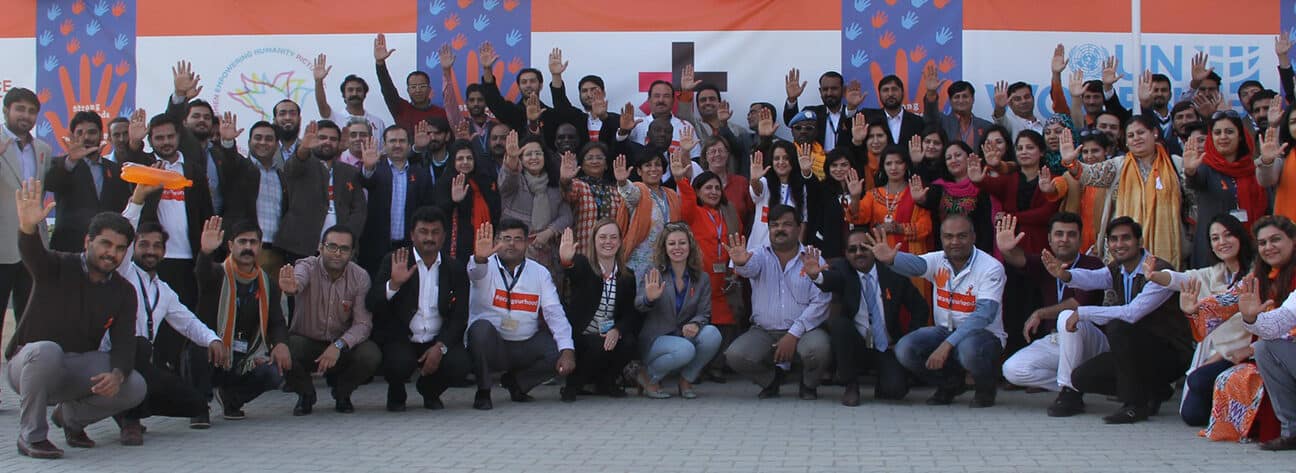Partnerships
We are committed to promoting effective partnerships in the international development sector to ensure they add value, harness existing resources, and support more holistic and complex interventions to global and local challenges.
Partnering for sustainable development is key to achieving the Sustainable Development Goals (SDGs) by 2030 in the United Nation’s Decade of Delivery. Goal 17 calls for strengthening the “means of implementation to revitalize the global partnership for sustainable development.”
We aim to support our members to develop more equal relationships with their partners, which are contextually-relevant, involve mutual learning and benefits where the local expertise of in-country partners is respected, and responsibility for high quality programme delivery is shared.
We are working to assess the needs of the sector and to share existing learning and tools for building effective and equitable partnerships for sustainable development. Our latest report looks at how cross-sector partnerhsips are changing for INGOs.
Join our Partnership Approaches Learning Group to generate shared learning and evidence and encourage changes in organisational thinking, policy and practice, in order to strengthen partnership approaches and promote institutional effectiveness.
Below is information, guidance and tools to support your partnerships.
Principles and cycles of partnerships
The Principles of Partnership (PoP) developed and applicable to UN and non-UN entities seeks to address the gap between INGOs and local actors implementing development and humanitarian work, by setting out five clear principles that aim to bring together actors on an equal footing.
Developing and managing effective partnerships which reflect the principles of partnerships is challenging and resource-intensive. The Partnering Initiative has developed the Partnering cycle and the partnering principles which summarises the different stages of partnering, including moving on.
Understanding the extent to which your organisation is “fit for partnering” allows you to assess the internal systems, processes and commitment there is to partnering in order to maximise the benefits of collaboration.
Toolboxes and resources
Many of our members have developed partnering toolboxes and guides to improve partnership practices, ensuring that they are efficient, effective and impactful.
- Our report with The Partnering Initiative on trends in cross-sector partnering for INGOs.
- WWF’s The Partnership Toolbox provides an array of tools for a structured approach to partnership and tools for monitoring and evaluating these.
- Nesta has worked in collaboration with WWF, Forum for the Future and TPI to develop this Partnership toolkit with links to other resources.
- WaterAid Partnerships in Practice toolkits, in both English and French, are specific tools for the WASH sector.
- The Partnership Initiative has developed many tools including a Partnership Health Check tool.
- The Partnership Brokers Association has developed an array of handbooks, workbooks and tools including Brokering Better Partnerships by investing in the partnering process and the Remote Partnering Workbook for long distance partnerships.
Localisation and partnerships
The role of local actors in development and humanitarian work is critical to achieving the SDGs and successful interventions. In recent years, there has been a push to resolve the power and funding inequalities prevalent in the sector, through the localisation agenda, formalised through the Grand Bargain agreement in 2016 between large donors and aid providers. However, there is still a long way to go.
Below are just a few resources on the role of partnerships in advancing the localisation agenda:
- Partnership practices for localisation: a guidance note, by Christian Aid, highlights partnership practices that local humanitarian and INGOs believe are most conducive to localisation. This guidance note was further validated by participants of the three Grand Bargain Localisation Workstream regional conferences in 2019.
- The report Localisation in practice outlines The Seven Dimensions of the Localisation Framework: Emerging Indicators, of which partnership is central.
- The IRC’s Localising the response, analyses the IRC’s experience of working in partnership with local and national actors.
SDGs and partnerships
Moving from transactional to transformative partnerships is key to achieving the SDGs. Various organisations have produced useful papers on the progress and monitoring of the goals.
Below are just a few resources about harnessing the power of partnerships to achieve the SDGs.
- More than the sum of its parts: understanding and maximising value in partnerships.
- Maximising the impact of partnerships for the SDGs: A practical guide to partnership value creation supports organisations and partnerships to maximise the value created by collaboration towards the Sustainable Development Goals.
Funding and partnerships
For more on funding and partnerships, please visit the funding page.
Safeguarding and partnerships
For more on safeguarding and partnerships, please visit the safeguarding page.
Different types of partnerships
There are various types of partnerships within the sector including cross-sector partnerships, corporate partnerships, academic and research partnerships, and partnerships formed as part of consortia working.
Bond is keen to develop our partnership pages and curate resources. Please contact us to suggest resources we should add to these pages or to find out more about our work on partnerships. [email protected].

